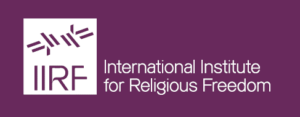
As this is our first newsletter of 2025, it’s a good time to look back on the past year and see how we did. Overall, I’m very pleased and encouraged.
In the past year, we continued to develop our Violent Incidents Database, which is becoming a valuable tool to systematize violent forms of religious freedom violations for all faiths, and with attention to the subnational level. It stands as an important complement to other religious freedom datasets. We produced a book and webinar on church-state relations in Zambia (a unique situation where Christian principles are written into the national constitution), along with numerous journal articles and reports on situations all over the world. We launched the first subregional report, on sub-Saharan Africa, of the Global Religious Freedom Index. We completed our annual audit of the Open Doors World Watch List, probably the world’s best-known report on persecution of Christians. We co-organized, with Canopy Forum (which is part of the Center for the Study of Law and Religion of Emory University) a virtual symposium and essay series on “Masking Religious Freedom Violations.” All these products have been instrumental in bringing visibility to less detected religious freedom violations, in particular in the Majority World.
Of course, producing reports and statements doesn’t mean much unless people are listening. But our interactions with leaders in many countries show that our improved quality of documentation makes it harder for governments and other stakeholders to dodge the problem and helps them take meaningful action.
As one US policymaker has said, “If a Christian NGO uses figures to us and says, ‘trust us,’ I can tell you they have no weight, because we don’t trust them anymore; but let them offer evidence that is ‘open source,’ or undeniable, and they have more leverage than they dream.”
The IIRF was born after a German legislator told Prof. Dr. Thomas Schirrmacher, who would become a co-founder of our organization, that his evidence of religious freedom violations was not sufficiently rigorous. We have made great progress since then. On behalf of both the victims we assist and the people whose rights we protect, we thank all our partners, informants, and financial contributors who make our work possible.
Author: Dr. Dennis P. Petri, IIRF International Director